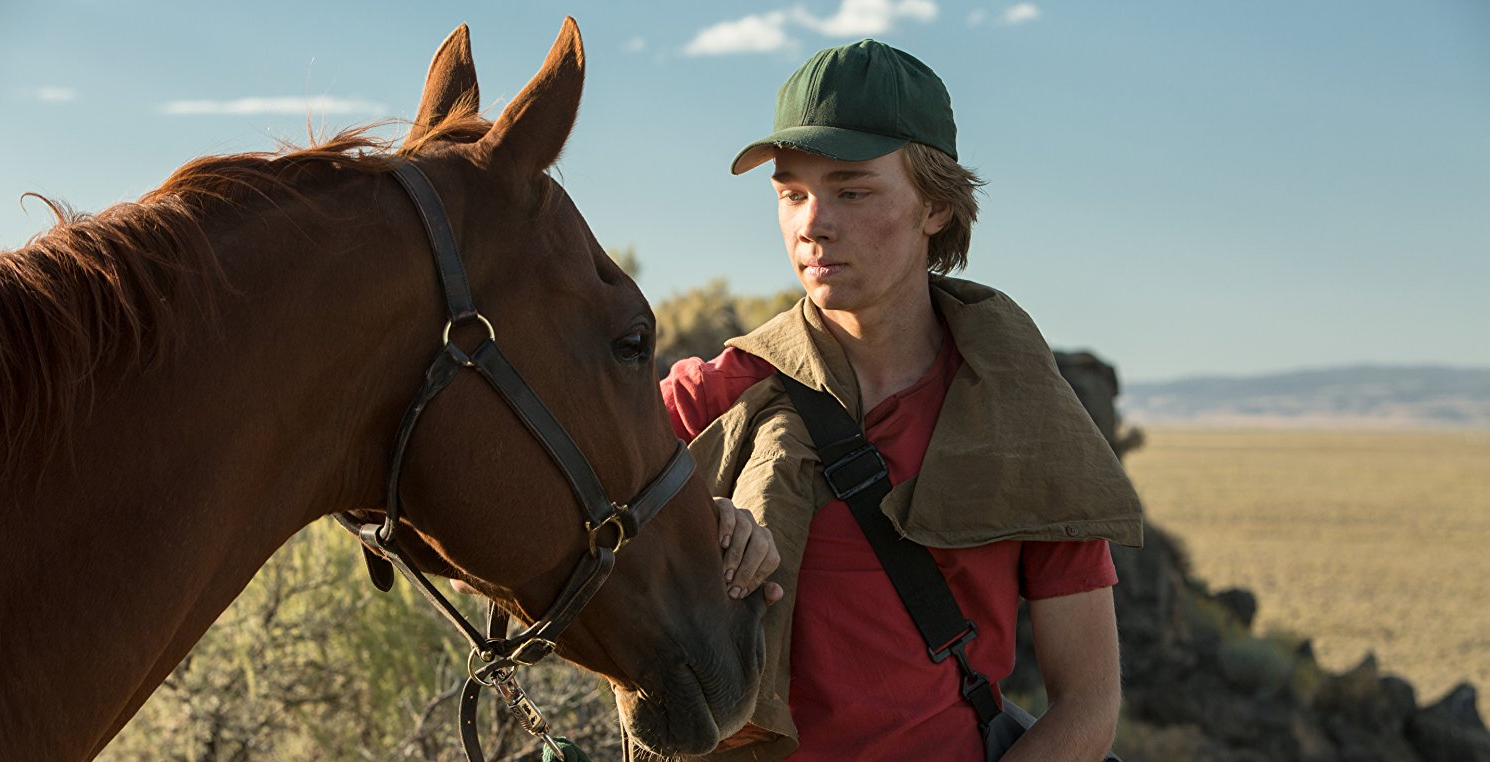
MPAA Rating: R | Rating: ★★★½
Release year: 2018
Genre: Adventure, Coming-of-Age, Drama Director: Andrew Haigh
Lean on Pete–the other horse-centered nu-Western of 2018–is a quiet, nuanced, immensely sad film about a young man navigating the harshness of this world. To make a Dardenne brothers reference (as is my wont) I thought it was going to be La Promesse with horses, but it ended up being Rosetta with…less horses. The Rosetta here is Charley (Charlie Plummer), a teenager recently relocated to Portland, OR from eastern Washington alongside his delinquent father Ray (Travis Fimmel). If Chloe Zhao’s film is The Rider, Andrew Haigh’s could be titled The Runner. From scene one, Charley is alone and on a run, having to fend for himself. Plummer’s performance as Charley is perfect, a combination of awkward teenage movements and fears even as he has to grow up sooner than he’d like. He runs by a horse racing track–I’ve seen it in North Portland–and feels drawn to check it out. He seems to have a spiritual connection with these horses, at-once powerful and free even as they are caged and run down. These horses were made to run, and running is all Charley has ever known, fleeing an unknown past with his father. When a cantankerous horse trainer, Del (Steve Buscemi) offers Charley a job as a stable hand, it sets off the series of events which will lead the teen on a cross-country adventure. Charley is thrust into the dying world of quarter horse racing and falls in love with a horse named Lean on Pete. As Del runs Pete into the ground, a violent tragedy with Charley’s father and Pete’s fate of impending “retirement” prompt Charley to (yes) run.
And so, halfway into the film, Charley and Pete run. Well, trudge is more like it. The story takes a drastic turn from “a boy and his horse” coming-of-age tale to a smallish adventure in the tradition of Kelly Reichardt’s films, a sort of Wendy and Lucy meets Meek’s Cutoff. Andrew Haigh’s direction makes a noticeable shift here; there are beautiful long dissolves between scenes, wide shots of vast landscapes, and unexpected narrative turns, especially regarding the fate of Pete. Previous characters which seemed to be of increasing importance are suddenly gone–Charley has run away from them, and thus the film no longer requires their presence. Yet there remain a consistency here, and the tonal and visual shifts feel appropriate. Haigh really knows how to frame and light a shot, and ordinarily mundane moments–Charley entering the stable in the dead of night, for instance, or him walking Pete around in a circle–are strangely breathtaking images.
A cell phone doesn’t appear in Lean on Pete until nearly the final 20 minutes of the film. Pay phones and paper maps are key to Charley’s survival. This lack of digital technology gives Lean on Pete a sense of being timeless–it could have taken place at nearly any time in the past 40 years. Bleak yet beautiful, Lean on Pete takes surprising, unexpected turns in direction and narrative, albeit its cathartic final moments are quite conventional, and the tears are earned. This is a grim world of poverty and homelessness, a sense of being stuck and systems unable or unwilling to help. Every time Charley is confronted by an authority figure–a police officer, a hospital nurse, a restaurant manager–he finds a way to slip away and run. Yet Charley as the Prodigal Son, running both away from his previous life and towards an unknown future with his aunt, experiences small moments of grace in his journey–a kind horse jockey (Chloe Sevigny) offering advice and friendship, a waitress giving him a free meal, some young Army vets inviting him for dinner. As he runs, the landscapes of Eastern Oregon are breathtaking, a brutal desert which Haigh respectfully imbues with mystery rather than harshness. Lean on Pete is ultimately a survival story, a tale of two runners–Charley and Pete–and their adventure in the margins of America.
IMDB Listing: https://www.imdb.com/title/tt5340300/
Leave a Reply